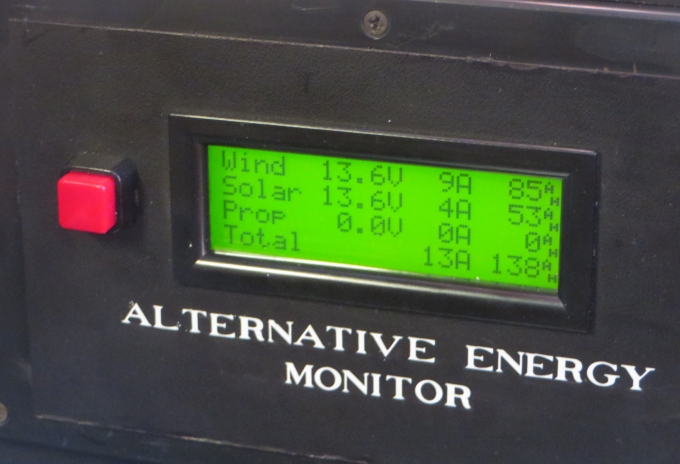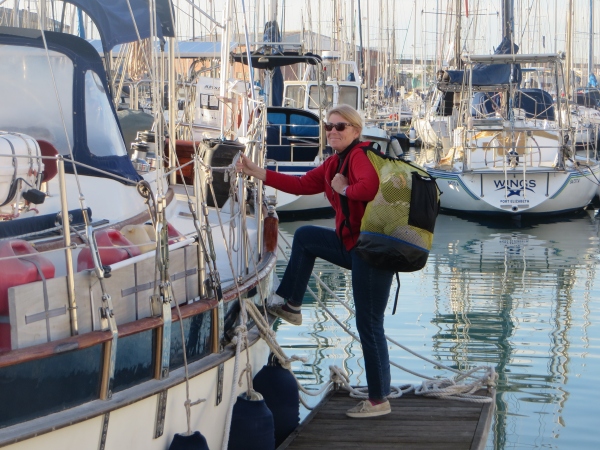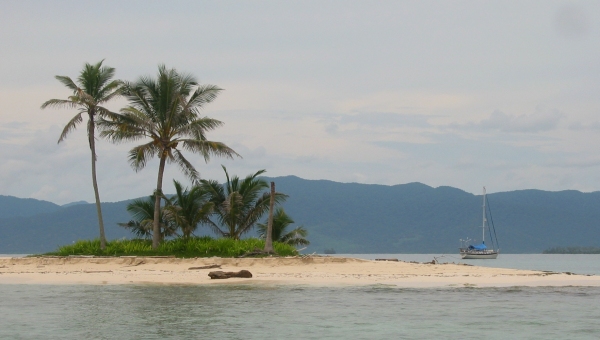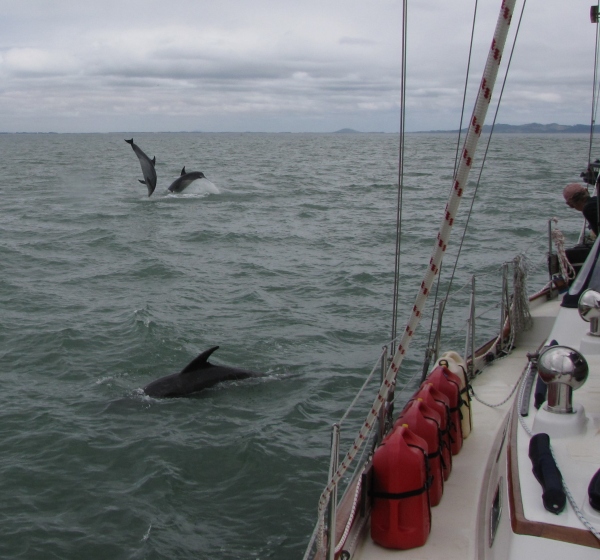FAQ - How do you handle arguments aboard?
/ Yes, we sometimes have heated discussions aboard Nine of Cups. We do squabble and quibble and quarrel on occasion, and yes, sometimes it escalates into a full-blown argument. It's rare and hard to believe, but admittedly, it's true. David and I do not always see eye to eye. What a revelation by people who pretty much spend 24x7 together! Our actions following an argument, (but before the make-up) can be somewhat limited and many times defined by our location. Arguments on the dock, for instance, provide many more options than arguments at sea.
Yes, we sometimes have heated discussions aboard Nine of Cups. We do squabble and quibble and quarrel on occasion, and yes, sometimes it escalates into a full-blown argument. It's rare and hard to believe, but admittedly, it's true. David and I do not always see eye to eye. What a revelation by people who pretty much spend 24x7 together! Our actions following an argument, (but before the make-up) can be somewhat limited and many times defined by our location. Arguments on the dock, for instance, provide many more options than arguments at sea.
Usually confrontation ensues when we're in stressful situations. Docking and anchoring are two culprits for many folks, although we've worked out some of the kinks over the past decade or so. Generally, arguments begin over something trivial and get blown out of proportion because of 1) foul moods of one or both crew members; 2) we're frustrated over something, like waiting for a part or a weather window; or 3) the captain is being stubborn and thinks he's right about something, when the first mate knows full well he's wrong. (Captain's comment: “As if!”) Sometime we're just overdue for a break, a change of venue and/or some individual “me” time.

We get angry in different ways. Marcie is emotional … she gets furious, shouts, stomps and slams doors, gets over it in an hour or two and she's fine. David is slow to anger and even slower to get over it. We don't swear or call each other names; we just seethe and sulk. At a marina, there's escape by just walking down the dock and mulling things over. At sea, we usually end up in different parts of the boat for as long as it takes … the aft bunk, the cockpit, the nav station, the galley, as far away from the other partner as possible … looking for our own private Idahoes and allowing ourselves to cool down. Once we're both back in a communicative frame of mind, it's pretty easy to resolve the issues, profess our humble, mutual apologies and get on with the day.

So … a long answer to a short question. What happens when we have an argument aboard? We fume, spout, sulk and pout and then we get over it.








 Getting an article published is exhilarating. The first time you see your words and photos in print is an absolute thrill. We write about sailing, cruising and the live-aboard lifestyle because that's what we do. You can write about any area of interest and it's pretty much guaranteed there will be a magazine that covers the topic.
Getting an article published is exhilarating. The first time you see your words and photos in print is an absolute thrill. We write about sailing, cruising and the live-aboard lifestyle because that's what we do. You can write about any area of interest and it's pretty much guaranteed there will be a magazine that covers the topic.